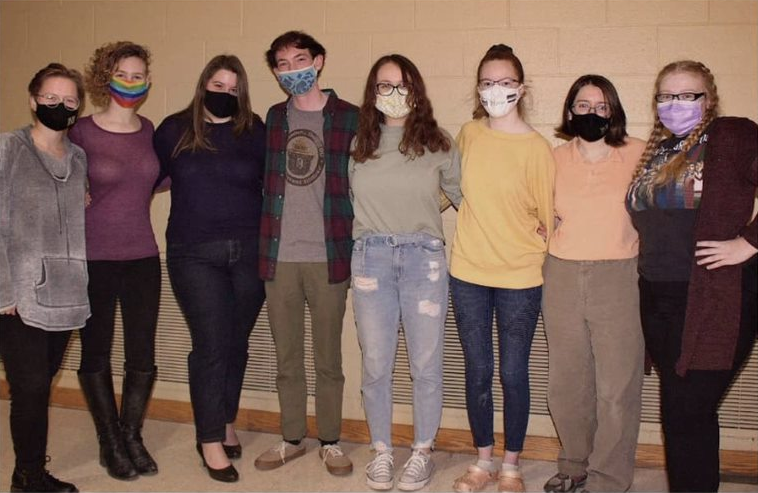By Megan Brown (’22)
It seems a little redundant to state that we are all a little bit stressed. Turn to any of your classmates who may have blank stares and blank expressions hidden beneath their masks or even your roommate who has been zoning out at their laptop all day, and you will see that this semester is taking a toll on us. Couple regular school stress with no breaks in the semester, except Good Friday, add in stress because of the COVID-19 pandemic, and it becomes perfectly clear why students at Houghton College feel the way they do. This semester was a poor time to remove all breaks because students are already at a heightened chance of burnout due to stress caused by COVID-19.
To make sure we are working from the same base, I am using the Merriam Webster definition of burnout, which is “exhaustion of physical or emotional strength or motivation usually as a result of prolonged stress or frustration.” A normal college semester already leaves students vulnerable to burnout. Fifteen intense weeks of projects, tests, and extracurriculars alone can make us tired and prone to frustration. We know how we perform during college is often pertinent in getting jobs we desire in the future, so that stress of doing well adds up from week to week, from test to test. Removing a reprieve for students during a regular semester would be difficult for us to push through, but with the added stress of living through a pandemic that affects the we we must live our lives for the past year, it is no wonder why many of us are dealing with heightened exhaustion and frustration.
One way we often deal with stress to avoid burnout is by hanging out with friends. Humans are social creatures, and I think even the most introverted introvert may be beginning to feel that need for some basic social interaction. Being with the people we love and sharing our struggles is recommended for dealing with stress and trauma, but the irony of the matter is that due to COVID-19, to best take care of our friends we need to limit our interactions with people. Our circles must be smaller. When we do get to hang out with others, there now exists a subconscious nagging of “Am I going to get someone sick? Or is someone going to get me sick?” That is its own stressor, and that can add up, too. While we cannot take a break from the reality this pandemic has plunked us into, we can take a break from school, which would help ease some of the stress students are under.
I understand that if students were to leave during breaks, that would potentially add to the spread of the virus and put our campus at a significantly greater risk of shutting down because of an outbreak. That too would increase stress, as people’s lives would be put at risk and many could be put into quarantine. Because of this combination of immense stress due to COVID-19 and currently having no officially set academic breaks (the “snow days” this Monday and Tuesday only encourage professors to give students the day off), burnout will continue to occur.
To speak further about the encouraged off days that are happening this Monday and Tuesday, they are a nice gesture while also being a bit haphazard. These reading days were not planned when professors created their schedules, and because of this, some professors, especially ones that lead lab classes, and their students cannot participate in the reading days. Therefore, not every student will have a break early this week where they can relax and take a mental health moment before the final push to the end of the semester. Students should have an equal opportunity to avoid burnout by having the same breaks.
As we are nearing the last month of the semester, I urge our Houghton community to look to our neighbors who are burnt out and who may be short-tempered. We must have compassion and be slow to anger towards them. I know for me this is not always easy, especially when I am exhausted myself. However, if we all look towards each other and are a little bit more patient, especially in the moment when we desperately do not want to be, this could begin to chip away at our collective college student stress. ★
Megan is a junior majoring Writing and Communication with a concentration in Media Arts and Visual Communication.

